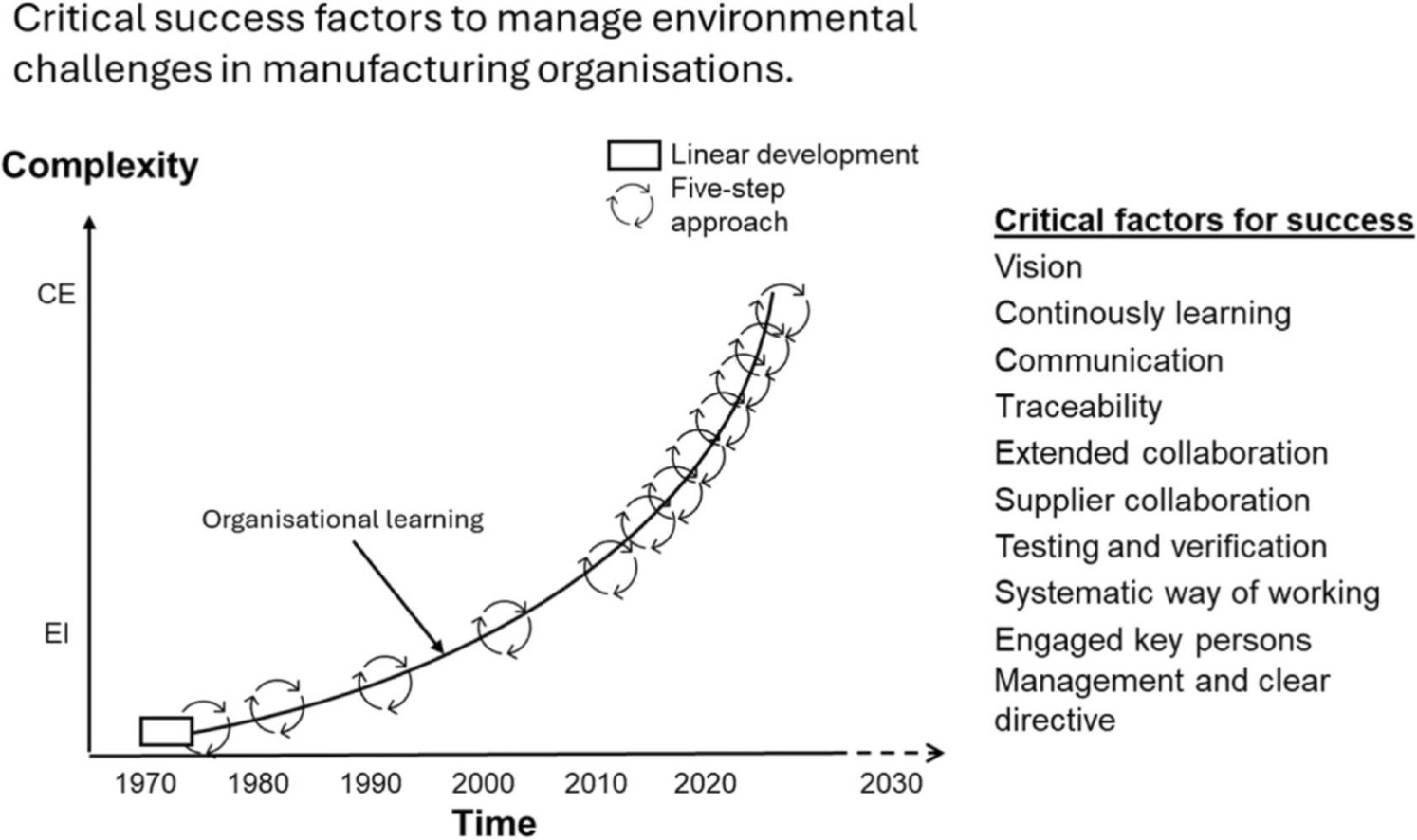The urgent need for a sustainable transition in society compels manufacturing companies to manage environmental innovation and circular economy efficiently. While a linear economy relies on the traditional diffusion of innovations with controlled trade-offs, a circular economy challenges industries to develop capabilities to solve complex problems that support sustainable development.
Over the past six decades, critical success factors are identified by applying the positive deviance theory to study cases of environmental innovation, including vision, continuous learning, communication, traceability, extended collaboration, supplier collaboration, testing and verification, systematic working methods, engaged key persons, management, and clear directives. Additionally, a five-step approach for managing environmental innovation is developed to facilitate organisations’ transitions towards sustainable development.
Sannö, A., Fundin, A., Deleryd, M. (2024) “Transcending compliance when managing environmental innovation – Organisational learning from six decades of change”,
Environmental Technology & Innovation, Volume 36, November 2024, 103892.
